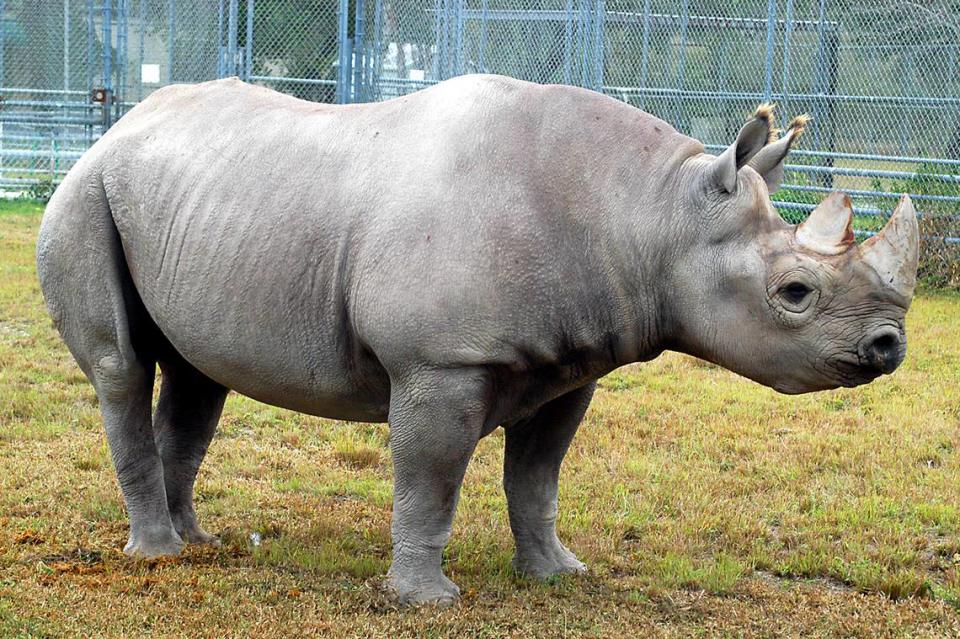Loss of Zoo Miami animal ambassador leaves ‘hole in the hearts of all who loved him’
Over the last several months, Toshi’s arthritis made it hard for him to stand.
He could barely lift his head to eat. He couldn’t paint. And he no longer greeted the people who came to see him.
The once pleasantly plump black rhino, who served as one of Zoo Miami’s animal ambassadors, started shedding pounds. He became only a fraction of what he was in his younger days.
So on Friday, Zoo Miami workers tearfully said goodbye to the 43-year-old rhino after making the difficult decision to euthanize him.
“His loss leaves an immeasurable hole in the hearts of all who loved him,” said Ron Magill, a spokesman for the zoo.
Toshi, who was born in April 1977 in Hiroshima, Japan, came to Zoo Miami (then Miami Metrozoo) in April 1983 after taking a journey on a ship.
“Though impressive and intimidating in size and strength, he was a gentle animal and made a huge contribution to preserving his highly endangered species by siring several offspring during his time with us,” Magill said in a statement about the great grandfather.
During his time at the zoo, Toshi met “countless guests” as part of the zoo’s behind-the-scenes tours including children with life-threatening illness and celebrities like Shaquille O’Neal and Gloria Estefan.
But in recent weeks, Toshi’s “advanced age” — he is believed to be the oldest Eastern black rhino in North America — started to take a toll on him.
“Though some of those ailments, such as severe arthritis, were being successfully treated with medications, as time wore on, the treatments became less and less effective,” Magill said.
In recent weeks, the zoo’s Animal Health and Animal Science teams became concerned about Toshi’s dramatic weight loss and lethargy. Tests were done, but nothing was conclusive.
Last week, staff decided to put Toshi under anesthesia to do “more detailed and revealing tests” as a “final effort to find answers and hopefully stop the serious decline in Toshi’s condition,” Magill said.
“This decision was not made lightly because there was a very strong possibility that Toshi would not be able to recover from the immobilization,” Magill said. “Fortunately he was able to successfully awaken from the procedure, but unfortunately, it did not reveal any single issue that could be responsible for his sudden decline.”
By Thursday, Toshi was “struggling to get up and it became obvious that his quality of life had diminished to the point where there was no hope of recovery,.” Magill said.
Toshi became the second animal this year that had to be euthanized. On Jan. 4, workers euthanized a giraffe named Pongo, who had a severe foot injury.

 Yahoo Movies
Yahoo Movies 


